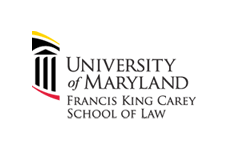The Spring Symposium explores the implications of intellectual property, particularly patent exclusivity, on the medical diagnosis and treatment of gene-based diseases. This consideration includes the concept of patentable subject matter, examining the patentability of genes and research methods, including genetic diagnostic kits.
Earlier this term, the U.S. Supreme Court heard oral arguments in Bilski v. Kappos, which challenged the patentability of certain business methods. This case impacts method patents directed to life sciences research and diagnostic testing, as seen recently in Prometheus Laboratories, Inc. v. Mayo Collaborative Services. At the heart of the Bilski case is the Federal Circuit's machine-or-transformation test and Congress' intent to allow patents protection for methods of conducting business.
A related concept to the subject matter patentability issue in Bilski is the debate over the patentability of genes. Recently, the ACLU filed suit against Myriad Genetics, challenging the company's patents on two genes linked to breast and ovarian cancers. Although the case is still pending in the lower courts, many have already recognized the broad implications this case will likely have on the biotechnology industry and genetics-based medical research in light of the thousands of gene patents issued since the sequencing of the human genome.
Experts from academia and professional and regulatory institutions will discuss the implications of these two landmark cases poised to change the future of biotechnology patents.
| 2010 | ||
| Friday, April 2nd | ||
|---|---|---|
| 9:30 AM |
Opening Remarks and Panel #1: Implications of ACLU-Myriad on the Patentability of Genes Timothy Holbrook, Emory University School of Law 9:30 AM - 11:30 AM |
|
| 1:30 PM |
Panel #2: Bilski and the Future of Medical Diagnostic Inventions and Closing Remarks Joann Boughman, The American Society of Human Genetics 1:30 PM - 3:15 PM |
|
